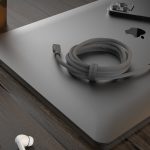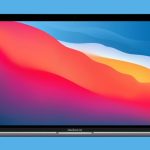Mr Andrews said the state’s public health team would investigate how the man caught the virus.“One thing is we can’t rule out is airborne transmission of this (the virus). That is challenging – very, very challenging,” Mr Andrews said.He added: “With a virus – it’s not static… it’s changing. Whether it is South Africa, Japan, the UK strain – whatever’s next to come – pose a challenge to us, we all have to work together.”It was widely believed that the coronavirus spreads through droplet transmission, which happens during close exposure to a person infection with the virus primarily via larger respiratory droplets such as when a person coughs.However, the US Centre’s for Diseases Control says there is growing evidence infection can occur through airborne transmission — smaller droplets that stay in the air for longer distances and time — under certain conditions.
Earlier, in a late-night press conference on Wednesday, Mr Andrews said that the state would again return to mandatory masks indoors, reintroduce caps on gatherings to 15 people in a household and would halt the 75 per cent return to work, which was scheduled to begin on Monday.The positive case brings an end to Victoria’s 28-day run of zero community transmission.“We have to assume that this person has infected others,” Mr Andrews said.According to the Health Department, the 26-year-old Noble Park man last worked at the Grand Hyatt Hotel, where Australian Open workers and officials have been quarantining, in Melbourne on January 29 and anyone there was considered a casual contact.
“There is a number of about 500, 600 people who are players and officials and others who are casual contacts,” Mr Andrews said.“They will be isolating until they get a negative test and that work will be done tomorrow.“This new case will count as a case of community transmission,” Mr Andrews said.“So, we’re back to day zero.”The man took a PCR test at the end of his January 29 shift and tested negative but developed symptoms, and tested positive.He had been to a number of places in the community between his last quarantine shift and his positive test.Mr Andrews also said the individual is a CFA volunteer and has been to CFA functions. Health authorities are working with fire authorities to identify and notify all firefighters he may have come into contact with.Mr Andrews said that the man had given very detailed accounts of his movements and the exposure sites that are concerned, and that comprehensive contact tracing was under way.However, restrictions will now be reintroduced, back to the settings that were in place during the Black Rock cluster.
The rules went into effect at 11.59pm on Wednesday night.“We have to assume that this person has, in fact, infected others. And it’s through that abundance of caution that I’m announcing, from 11:59pm tonight, Cabinet has endorsed the advice of the chief health officer to reinstate the Black Rock or New Year’s Eve settings.Those restrictions are a reduction in private gatherings to 15 people. Mandatory wearing of masks indoors,” Mr Andrews said.“A pause on the scheduled shift of 75 per cent of private sector workers returned to the office from Monday. Instead the public sector will remain back at 25 per cent occupancy, and private sector 50 per cent occupancy,” said the premier.“There’s a whole lot of rapid testing being done tonight. We’ll get those results in the morning. There’s other testing that will be done throughout tomorrow. And we’ll get those results and we’ll update you accordingly.”Mr Andrews emphasised, “This is one case. There’s no need for people to panic. There’s no need for people to be alarmed. We Victorians know what to do, and we have proven, as a state, very successful at managing these sorts of outbreaks, these sorts of issues.”
Victorian Premier Daniel Andrew brief the media over a hotel quarantine worker from Noble Park in Victoria has tested positive for COVID-19.
Chief health officer Brett Sutton said he was confident Victoria could eliminate the virus again. “We’ll do it again. We will do it again. If we have to do it 10 times over, we can do it. We’ve got the tools. Really importantly, we’ve learned the tough lessons and we’ve provided those tough lessons to the rest of Australia. We’ve learnt from our counterparts,” he said.“Every time there’s a challenge that one of our interstate counterparts faces, we learn from it. And vice versa. And I think Australia’s in a good position. No-one wants to have gone through the tragic circumstances that Victoria has, but you cannot have that occur and not embed those lessons to make sure that you’re in the very best position going forward.”Mr Sutton said that the Noble Park man’s test results revealed he had a “high viral load” and that there is a risk that anyone who came in contact with him may test positive.“But that’s why we’re contacting them now. That’s why they’re isolating from this moment forward and why their contacts will isolate as well so that, if a case occurs, there won’t be further transmission to others,” he said.All of the man’s contacts are currently isolating in medi-hotels.Mr Sutton said he thinks it is unlikely any of the Australian Open players will be affected.
NED-2712 Aus Vaccine Hopes REBUILD
SA RESTRICTS MELBOURNE TRAVELLERSSouth Australia has ruled travellers from Greater Melbourne to be COVID-19 must be tested on days one, five and 12 after a hotel quarantine worker in the Victorian capital contracted the virus. Under the changes, those people entering SA will need to isolate after their first test until a negative result is received. Premier Steven Marshall said the news of the Victorian case was “concerning” but clarified the border would remain open. He advised anyone who had been to the Grand Hyatt Melbourne from January 28 will need to go into hotel quarantine. People who have been to any of the Melbourne hot spots need to contact SA Health as soon as possible.
Mr Marshall said the state’s Transition Committee would meet again on Friday to look at self isolation requirements and provide a further update, which could see the isolation rule scrapped. “This is an area of concern and we do need to be alert (but) we don’t need to be alarmed,” he said. “We certainly have been able to deal very effectively with these type so situations before and I expect that it’s going to continue in the future.”SA deputy chief public health officer Emily Kirkpatrick said the situation with Melbourne differed to that in Perth.She noted the daily saliva testing of and frequent nasal testing conducted in Victoria. “Based on the information coming across last night and again this morning, we’re very confident that they had moved very quickly to undertake contact tracing and testing, putting close contacts into quartile and a very long list of locations have been identified,” Dr Kirkpatrick said. SA recorded no new COVID-19 cases on Thursday.
UK VARIANT CASE INVESTIGATEDHealth authorities are investigating possible transmission of the highly contagious UK coronavirus variant between residents at Melbourne’s Park Royal Hotel.A family of five who arrived on January 20 at the Park Royal Hotel were tested for COVID on January 23 and found to be positive.A woman in the room across from them, who has been there since January 11, then tested positive to an identical strain on January 27.Victorian Police Minister Lisa Neville revealed the “working assumption” was that the viral load of the family of five who were in one of the rooms was “so high” it escaped into the corridor when they opened the door.
“And the only reason that people open doors – there‘s no interaction with staff – is to pick up their food or drop their old laundry out,” she said.The positive cases have been moved to a health hotel and remain in strict isolation.CCTV at the Park Royal Hotel will be analysed, as well as a review of the ventilation to understand how the residents contracted the virus.But Ms Neville said there had appeared to be no breaches of COVID safety protocols.She also said a ventilation report found there had been no sharing of air between the rooms.At this stage, residents are not thought to have had contact with staff.
When will I be able to get the vaccine?
PROBE INTO JOBKEEPERThe Australian National Audit Office (ANAO) has launched a probe into the federal government’s key coronavirus support measure JobKeeper. The ANAO announced an audit into the Australian Taxation Office’s handling of the wage subsidy scheme over the pandemic.The audit will focus on the tax office’s ability to enforce the rules, monitoring and reporting and measures to protect the program’s integrity from fraud and false claims. JobKeeper at the beginning of the pandemic supported workers with a $1500 fortnightly payment, which has been reduced to $1000 and $650 for employees working less than 20 hours. Federal Labor senator Andrew Leigh has been calling for the Auditor-General to review the scheme, which has been available to small businesses and some large commercial groups such as Harvey Norman, Premier Investments and Qantas.“JobKeeper is the biggest single program ever run by the Australian government, so it’s vital that it gets proper scrutiny,” Dr Leigh said.
“The Morrison government has been extremely secretive about JobKeeper. They’ve refused to tell the public how much JobKeeper was paid to firms that increased their profits in 2020, and refused to say how much went to firms that paid executive bonuses.”Several companies have pledged to return JobKeeper payments if a profit has been generated during the pandemic.Domino’s Pizza last Friday announced it would hand back $792,000 to the taxpayer, saying the need for the support had passed. Toyota Australia and Super Retail Group, the owner of Super Cheap Auto and Rebel Sport, have also decided to hand back payments to the ATO.
The ATO during the scheme said it was investigating businesses making fraudulent claims and attempting to rort the system. Dr Leigh questioned why the companies such as Harvey Norman and Premier Investments have been able to access the scheme while boasting huge rises in revenue during 2020. “Solomon Lew’s Premier Investments has paid a $2.5m bonus to its CEO – more than most Australians will earn in a lifetime,” Dr Leigh said. “Gerry Harvey has said: ‘This is like the greatest boom I’ve ever seen in my lifetime.’ So why doesn’t Harvey Norman need taxpayer support?”In a note released on January 13, Premier Investment flagged it was expecting earnings before tax and interest for the first half of the current financial year to be in the range of $221m to $233m, a rise of up to 85 per cent on the previous period.
NED-2281 Pfizer Vaccine
PFIZER JAB SAFE FOR ELDERLY AUSSIESAustralia’s medicines regulator has cleared Pfizer’s coronavirus vaccine of danger to the elderly.The Therapeutic Goods Administration concluded, following a probe last month, that there was no casual link between the vaccine and the deaths of about 30 very frail elderly people — many of whom had only weeks or months to live — in Norway.“The case reports were discussed at a recent meeting of the European Medicines Agency Pharmacovigilance Risk Assessment Committee, which concluded there was not a specific safety concern, and no causal link between vaccination and deaths could be established,” the TGA said in a statement.“In addition, wider discussions with regulators in North America, the UK and Europe reached a similar conclusion.“The TGA therefore has concluded that there is no specific risk of vaccination with the Pfizer-BioNTech COVID-19 vaccine in elderly patients.”
However, the TGA did note that doctors should proceed with caution before vaccinating the very frail.“The data for use in the frail elderly (>85 years) is limited … the potential benefits of vaccination versus the potential risk and clinical impact of even relatively mild systemic adverse events in the frail elderly should be carefully assessed on a case-by-case basis”, it advises.The Pfizer vaccine is set to arrive in Australia this month, with vaccinations expected to commence in late February.The World Health Organisation also recently said it saw no evidence that Pfizer’s vaccine contributed to the deaths of elderly people“The current reports do not suggest any unexpected or untoward increase in fatalities in frail, elderly individuals or any unusual characteristics of adverse events following administration of BNT162b2,” WHO Global Advisory Committee on Vaccine Safety said last month“Reports are in line with the expected, all-cause mortality rates and causes of death in the sub-population of frail, elderly individuals, and the available information does not confirm a contributory role for the vaccine in the reported fatal events.“The committee considers the benefit-risk balance … remains favourable in the elderly, and does not suggest any revision … to recommendations around the safety of this vaccine.”
NED-1859 State of our borders
NSWThere are no restrictions around travelling to or from regional or rural NSW, or other areas of NSW.However, NSW Health currently recommends practising COVID safe behaviours such as physical distancing and hand hygiene when travelling within NSW, especially between Greater Sydney and regional and rural areas.All arrivals from Western Australia will be required complete an interstate traveller declaration confirming whether they attended any venues of concern. If so, they will be required to isolate for 14 days.
Travellers who have been in the WA’s Peel region, Perth and the South West region since January 25 will be required to get tested within 48 hours of arriving in NSW.
They will also have to follow the same lockdown rules as WA residents, including staying home for five days – until 5pm Friday. “If they do not get tested, they are required to remain at home for a total of 14 days,” the department said.
SOUTH AUSTRALIASydneysiders are allowed to travel into South Australia.But visitors will need to be tested on day one, five and 12 of their stay and must isolate until they receive a negative result from their first swab.Travellers from outside of the Greater Sydney area will have no restrictions and do not need to be tested. Travellers from Victoria, Queensland, Tasmania, Tasmania, the Northern Territory and the ACT can enter without restriction but must complete a Cross Border Travel Registration.But from 10.15pm on Sunday, January 31, South Australia closed it’s border to travellers from WA.If you are classified as an essential traveller, local resident, relocating to SA or fleeing from domestic violence, you are able to enter the state but will have to complete 14-days quarantine on arrival.Anyone who visited WA from January 26 also needs to quarantine.VICTORIAPeople from anywhere in Australia entering Victoria must apply for a permit to enter the state.Victoria has also reopened its border to the majority of NSW.However, those from the Cumberland LGA will need to apply for an “orange zone” permit, meaning travellers from the area will need to take a COVID-19 test within 72 hours after arriving in Victoria and isolate both before and after the test.Victoria has also slammed its border shut to the majority of Western Australia.Anyone who tries to cross the border from a ‘red zone’ will face a $5000 fine.Travellers who have visited Perth metropolitan area, the Peel region and the South West region of Western Australia since January 25 will not be allowed to enter Victoria.Those caught flouting the ban will be taken straight to hotel quarantine.
NORTHERN TERRITORYAll arrivals to the Northern Territory (NT) must fill in a Border Entry Form and complete 14 days of mandatory supervised quarantine at their own expense, if they have recently been in an active declared COVID-19 hot spot. This includes children returning from a hotspot.Perth and surrounds have been declared a COVID-19 hotspot by health officials in the Top End.All travellers entering the Northern Territory from 7.30pm Sunday, January, 31 are required to go into mandatory quarantine in either Alice Springs or Darwin at a cost of $2500 per person.
QUEENSLANDFrom Monday, February 1, anyone who has been in any part of New South Wales will be able to enter Queensland, by any means of travel, without having to quarantine or having to complete a border passPeople from most other parts of Australia can travel to Queensland freely.However, anyone who has been in Western Australia’s LGAs of concern and arrive in Queensland after 6pm on Sunday, January 31, will be forced into 14 days of hotel quarantine.Queensland Health said anyone who is already in Queensland and has been to Perth, the Peel or South West regions since January 25 should come forward for testing and isolate until they receive a negative result.
WESTERN AUSTRALIAParts of Western Australia will entered a five-day lockdown at 6pm WST on Sunday, January 31.The West Australian LGAs impacted by the lockdown include:Peel region: Boddington, Mandurah, Murray, Serpentine-Jarrahdale, WaroonaPerth Metro region: Armadale, Bassendean, Bayswater, Belmont, Cambridge, Canning, Claremont, Cockburn, Cottesloe, East Fremantle, Fremantle, Gosnells, Joondalup, Kalamundra, Kwinana, Melville, Mosman Park, Mundaring, Nedlands, Peppermint Grove, Perth, Rockingham, South Perth, Stirling, Subiaco, Swan, Victoria Park, Vincent, WannerooSouthwest region: Augusta-Margaret River, Boyup Brook, Bridgetown-Greenbushes, Bunbury, Busselton, Capel, Collie, Dardanup, Donnybrook-Balingup, Harvey, Manjimu, Nannup.TASMANIATasmania has fully reopened its border with NSW.
The state has deemed Perth and the Peel and South West regions of WA as high-risk and travel is not permitted. Anyone seeking an exemption must use the state’s G2G Pass system. All other areas of Australia are low risk, with no quarantine requirements, but travellers must register with Tas e-Travel.Those from other areas of Australia can travel to Tasmania without restriction.AUSTRALIAN CAPITAL TERRITORYACT Health has urged anyone who has been in the parts of Western Australia currently in lockdown since January 25, to quarantine.Deputy chief health officer Vanessa Johnston said the quarantine period would be the same as the five-days enforced in WA.However, people from WA as well as other parts of Australia can still travel to the ACT.
Powered by WPeMatico






